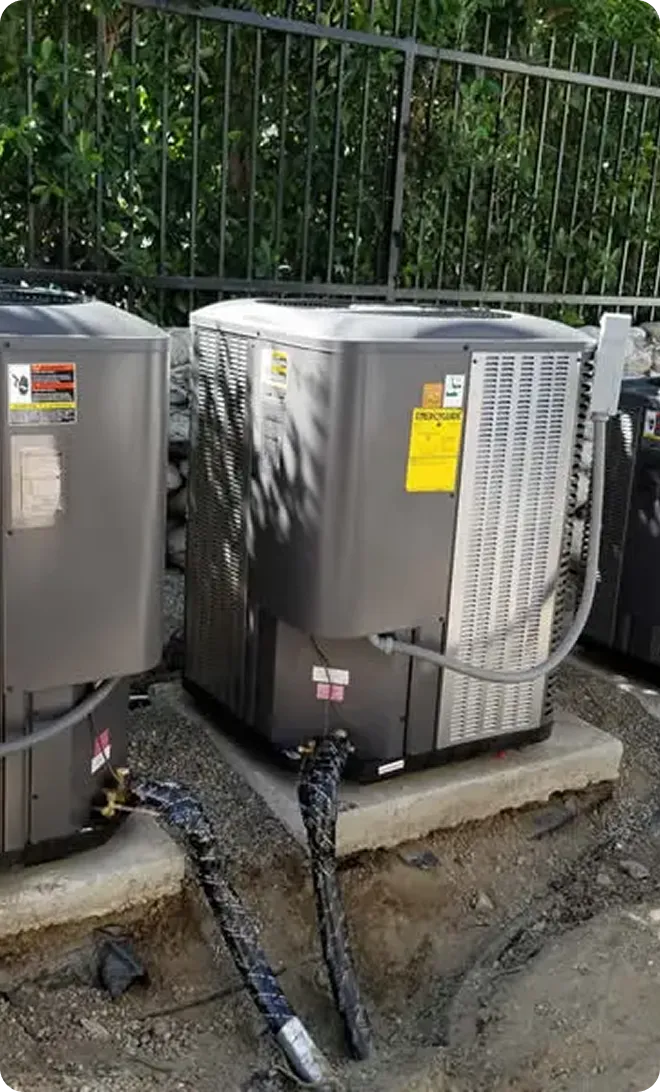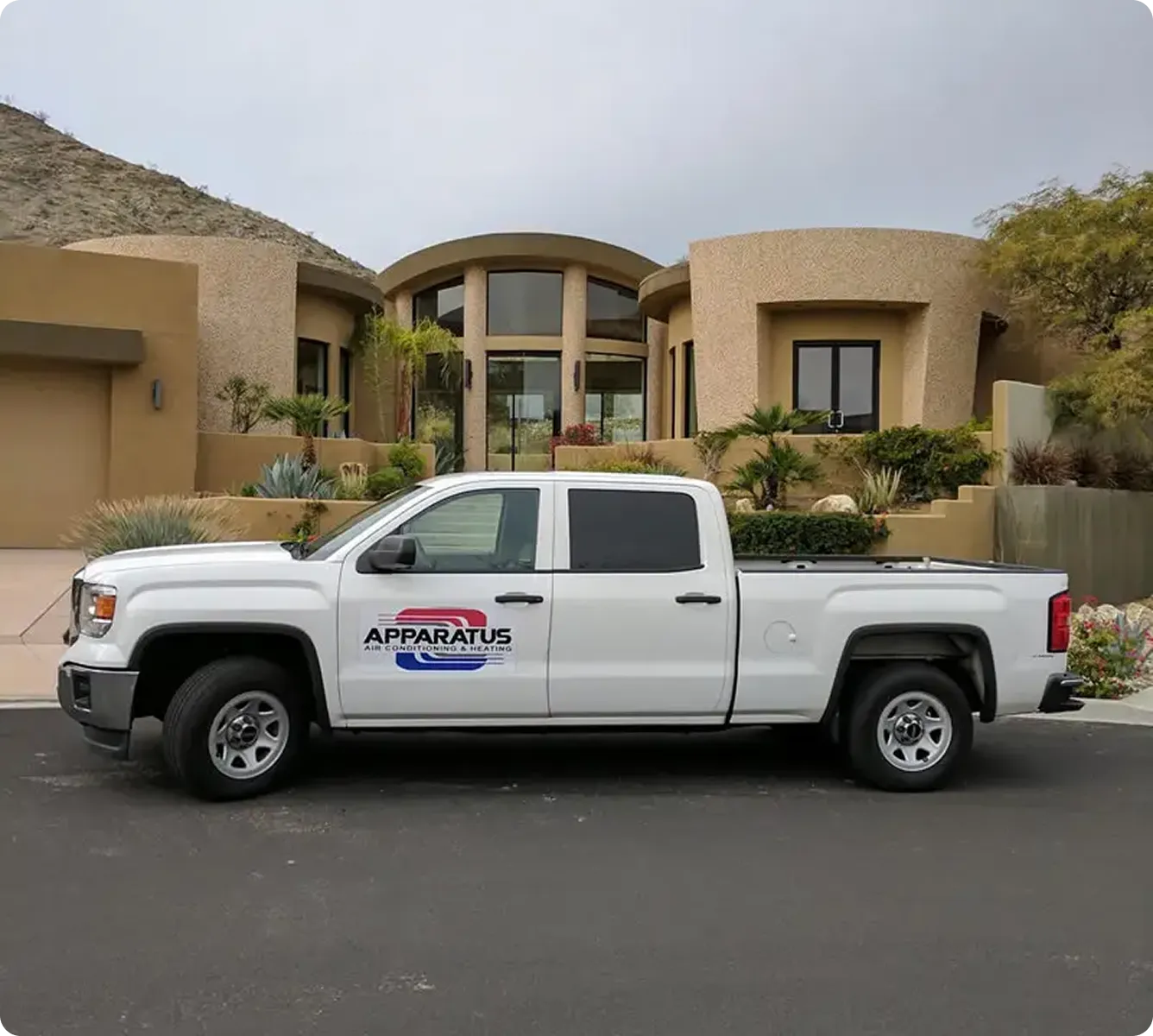
Mini Split Inspection in Cathedral City, CA
Mini Split Inspection in Cathedral City, CA
Keeping mini split systems running reliably is essential in Cathedral City, where prolonged high temperatures, fine desert dust, and seasonal humidity swings place extra stress on ductless heating and cooling equipment. A professional mini split inspection in Cathedral City, CA finds small problems before they become major failures, documents system condition for buyers or sellers, and verifies safe, efficient operation before the hottest months arrive.
.webp)
Why a mini split inspection matters in Cathedral City
Cathedral City homes face unique challenges that accelerate wear on mini splits:
- Persistent dust and sand that clog filters and indoor heat exchanger fins.
- Intense summer heat that increases runtime and compressor stress.
- Monsoon-season humidity that can create condensate and microbial issues in drain pans and lines.
- Older retrofits and long line-set runs common in local remodels that can hide installation or refrigerant issues.
An inspection tailored to these local conditions reduces emergency repairs, prevents water damage from blocked drains, and helps maintain energy efficiency when cooling demand is highest.
Common mini split issues in Cathedral City
Buyers, sellers, and homeowners commonly discover these problems during inspections:
- Clogged or dirty filters and indoor coils reducing airflow and capacity
- Refrigerant leaks causing poor cooling, higher energy use, and potential compressor damage
- Faulty condensate drain lines or pumps leading to ceiling or wall water stains
- Electrical wear: loose connections, failing capacitors, tripped breakers, or inadequate grounding
- Incorrect refrigerant charge or pressure imbalances
- Worn fan motors or bearings producing noise and reduced airflow
- Improper installation issues: undersized line sets, poor insulation, or unsecured outdoor units
Mini split inspection checklist
A comprehensive mini split inspection in Cathedral City, CA includes both visible checks and technical diagnostics to produce a clear picture of system health:
Visual & mechanical inspection
- Inspect indoor head(s) and outdoor condenser for physical damage, secure mounting, and corrosion
- Check line set insulation, routing, and evidence of oil stains that indicate leaks
- Examine filter condition and indoor coil cleanliness
- Inspect condensate pan, drain line, and condensate pump (if present) for blockages and proper slope
- Verify outdoor unit clearance from dust build-up, landscaping, and debris
Leak detection & refrigerant diagnostics
- Electronic leak detection and visual oil-spot checks on line sets and connections
- Measure refrigerant pressures and temperatures to calculate superheat and subcooling against manufacturer specifications
- Confirm refrigerant type and verify charge is appropriate for the system and outdoor conditions
Electrical safety & performance testing
- Inspect disconnect switch, breaker sizing, contactor function, capacitor health, and wire insulation
- Measure compressor and fan amp draw and compare to rated values
- Test thermostat or control connectivity and sensor calibration
- Check for proper grounding and surge protection recommendations
Drainage and condensate checks
- Activate system to verify condensate is flowing freely through drain lines
- Evaluate condensate pump operation and float switches where installed
- Inspect for mold, mildew, or biofilm in drip pans and drain components
Performance reporting
- Record baseline performance data: indoor/outdoor temps, static pressure, airflow estimates, amp draws, and refrigerant readings
- Provide a written inspection report with photos, prioritized recommendations, and estimated remaining life indicators
Pre-season and pre-sale inspection packages
Inspections can be tailored to your timing and goals:
- Pre-season inspection: Scheduled before spring/summer to prepare systems for peak cooling demand. Emphasis on refrigerant charge, airflow, electrical safety, and condensate removal to avoid mid-summer failures.
- Pre-sale inspection: Focused on documentation and disclosure. Includes detailed written report, condition photos, description of any deficiencies, and recommended repairs or upgrades for buyer or seller negotiations.
Both packages include the same technical checks; they differ in reporting focus and any added documentation requested for real estate transactions.
Typical repairs and recommended upgrades
Based on inspection findings, common recommended actions include:
- Cleaning or replacing filters and indoor coil cleaning to restore airflow
- Locating and repairing refrigerant leaks, then recharging to proper specification
- Clearing or replacing condensate lines, servicing condensate pumps, and sanitizing pans to prevent water damage and odors
- Tightening or replacing wiring, contactors, and capacitors to restore electrical reliability
- Replacing degraded line set insulation and securing outdoor units to reduce vibration and energy loss
- Suggesting system upgrades like high-efficiency indoor heads, line-set replacement, or whole-system surge protection for longevity
Each repair recommendation should be accompanied by the inspection report’s recorded data so you can see how the fix improves performance.
How inspections prevent costly failures
A timely mini split inspection prevents expensive breakdowns in several ways:
- Early detection of refrigerant leaks avoids compressor burnout, one of the most costly repairs
- Clearing condensate clogs prevents water damage that can require drywall and ceiling repairs
- Electrical checks reduce the risk of intermittent failures and fire hazards from loose connections or failing capacitors
- Performance tuning (proper charge and airflow) reduces excessive runtime and energy costs while extending component life
Documented inspections also protect value during real estate transactions and support warranty claims by proving regular maintenance and condition.
Simple maintenance tips for Cathedral City homeowners
Between professional inspections, homeowners can help preserve mini split health:
- Clean or replace filters every 1-3 months during heavy use; more frequently during dusty periods
- Keep at least 2 feet clearance around outdoor units and brush dust off fins gently
- Run the fan-only cycle occasionally to help dry internal components and reduce microbial growth
- Verify condensate lines are flowing by checking for visible discharge during a system run
- Schedule a professional inspection annually and again before summer to ensure peak-season reliability
Summary
A focused mini split inspection in Cathedral City, CA delivers a clear, actionable assessment of system condition, tailored to local desert dust and extreme heat. Whether preparing a home for sale, getting ready for summer, or protecting a long-term investment, a thorough inspection with written performance reporting identifies risks, recommends repairs or upgrades, and prevents the costly failures that often come with neglected ductless systems.

hear what our satisfied
clients have to say









.webp)